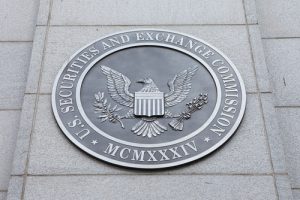
The Securities and Exchange Commission (SEC) recently adopted guidelines promoting research on a variety of investment funds in compliance with a law originally sponsored in the U.S. House of Representatives by U.S. Rep. French Hill (R-AR).
The SEC on Nov. 30 adopted rules and amendments to promote easier research sharing of mutual funds, exchange traded funds, registered closed-end funds, business development companies, and similar covered investment funds as mandated in Rep. Hill’s Fair Access to Investment Research (FAIR) Act of 2017, H.R. 910/S. 327, which was signed into law by President Donald Trump the same year.
“I’m pleased that my legislation opened up research of the rapidly growing exchange-traded funds to be publicly available, which allows main street investors to enhance their knowledge about investment options,” Rep. Hill said on Dec. 7.
Establishing the revisions creates a safe harbor for a broker or dealer to publish or distribute research reports on investment funds under certain conditions, according to the SEC, which noted it’s similar to the current regulatory safe harbor that exists for research reports about public companies.
“The FAIR Act rules provide a common-sense fix to current law barriers by removing unnecessary burdens that have prevented investors from accessing helpful market information,” said Rep. Hill last week. “I’ve personally seen the research produced by financial services firms, and am pleased that retail investors both in Arkansas and across the country now have access to it.”
SEC Chairman Jay Clayton said the commission’s response to the federal law “is crafted to facilitate more informed decision making, which in turn should improve the quality of a market that has become important to our Main Street investors.”
Both bipartisan versions of the FAIR Act were introduced on Feb. 7, 2017 by Rep. Hill in the House and by U.S. Sen. Dean Heller (R-NV) in the Senate. The measure became law on Oct. 6, 2017.



